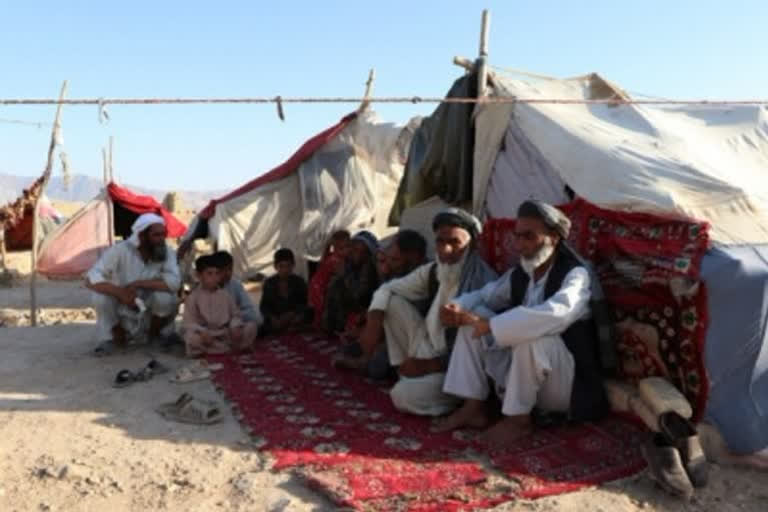New Delhi: In a disturbing development, a Washington-based think-tank, the International Crisis Group, has revealed a report which manifests that the international community should ease restrictions on war-torn Afghanistan to prevent "state failure and mass starvation". The report warned that hunger and destitution could "kill more people than all the bombs and bullets of the past two decades" in the wake of the Taliban's takeover of Kabul.
Harsh V. Pant, director of Studies and Head of Strategic Studies Programme at Observer Research Foundation in New Delhi said, "The situation in Kabul is very grim since the takeover of Taliban on August 15 and it is unlikely to get resolved in a shorter period".
Taliban, along with Pakistan, continue to press the United States and its allies to unfreeze their overseas assets to prevent a major humanitarian crisis as the winter approaches. But, United States' reluctance to unfreeze their assets is a major hurdle which in this case has become a matter of utmost concern which could potentially break the already ravaged nation.
As per the official reports, the US holds most of Afghanistan’s $9.4 billion in overseas assets and they have “bluntly informed” the Taliban that these assets will stay out of their reach.
On the issue of whether the US would unfreeze or release their assets to prevent a major humanitarian crisis, Pant said, "The US will work with other countries to ensure that some aid is given to Afghanistan via humanitarian organisations because the problem is not that countries don't want to help, but rather the question is how do you help."
He further added that "in the case, if these assets are released, then what is the guarantee that Taliban will not use it for terror funding and such sort of things. As of now, the Taliban, who is now in power have not met with any of their earlier promises and have carried on with their brutal policies of marginalising the minorities and women, targeting the political opponents, ruthlessly killing ex-servicemen. So, there is no guarantee that this aid, if given to the Taliban will reach to those who needed it most."
Also Read: UNHRC calls for humanitarian aid for 3.5 million Afghans to avoid starvation
Though some nations have already begun sending humanitarian aid to Afghanistan, be it India for sending huge amounts of wheat and medical supplies, to which Pakistan responded with sinister conditions. But, as of now, they've allowed this aid to reach Afghanistan but the reluctance of the US and the West to directly send such an economic aid to the Taliban is unlikely to happen given such a huge trust deficit between the concerned parties and Taliban's history.
As far as the situation on the ground in Kabul is concerned, unless the United Nations or some humanitarian organisation creates some kind of a mechanism, where aid gets channelized into the rights stream, the situation in Kabil till then would continue to deteriorate.
The narrative that Pakistan along with the Taliban have been continuing to propagate since the last decade that the hardliner Taliban has changed was accepted by America who was desperate to leave out from Afghanistan. They bought that narrative and the result is in front of us, neither peace is there nor any socio-political stability.
When being asked about whether the burden of Afghanistan's crisis should fall upon the US and NATO for deploying troops there post 9/11, Harsh Pant indicated that it is not that these nations have not invested in Afghanistan but the destructive ability of Pakistan is quite substantial in Afghanistan.
Now the situation unfolding in Kabul is so grim that even China is reluctant to invest there given the security threats. Apart from that, China who has been investing heavily in Pakistan for the CPEC, now has been drawing back their investments and are moving out which manifests that if the situation in Pakistan is such, one can wonder what could have been the situation in Kabul which now is directly run and controlled by Islamic fundamentalists, the Taliban.



